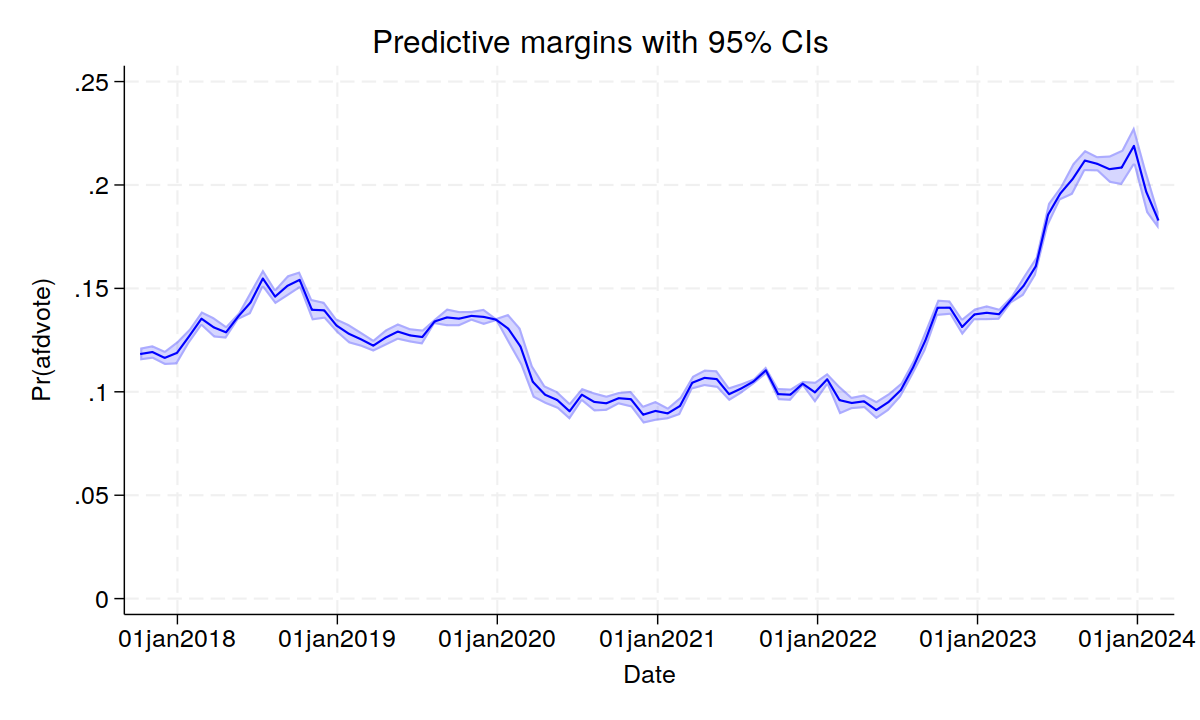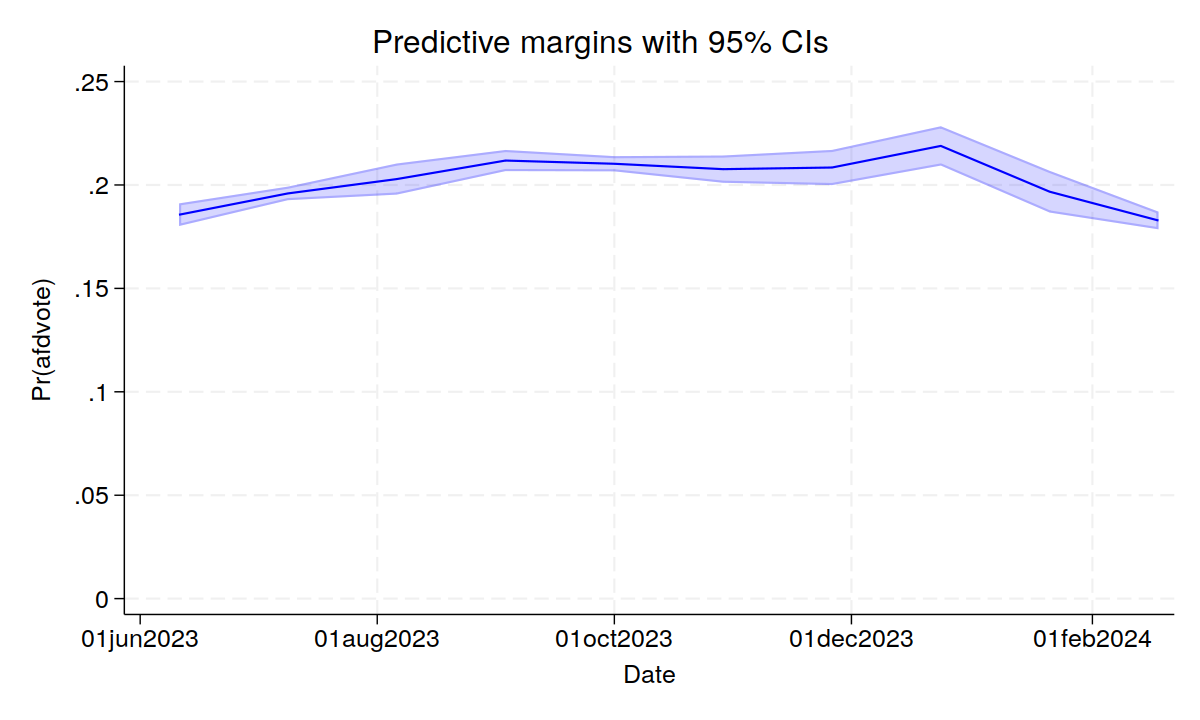When the public learned about the prevalence of extremist positions within Germany’s Alternative for Germany (AfD) party and their involvement with extremist actors outside the party proper, I was sure their support would remain confined to a hard core that does not care about such things, or even approves of them. That was … back in 2017.
And for a time, it looked like I was right. The public (and even professional observers) learned more and more unpleasant things about the AfD. The internal struggle within the party saw the AfD shifting ever further to the right. Under its new leadership, the federal intelligence finally took an interest in the AfD, and the party seemed to be stuck with a national vote share of 10+x%.
But then, about six months after Russia’s full-scale attack on Ukraine, support for the AfD began to rise. Against the backdrop of very high numbers of refugees arriving from Ukraine and widespread fears about energy security and economic decline, the party began to climb in the polls.
A year ago, the salience of immigration, which had been pretty low for years, began to increase. The centre-right parties did their best to parrot the AfD and stir up a culture war, because this had worked so well in the Anglosphere.
By summer 2023, the AfD polled 20% nationally for the first time, triggering a frenzy in the media, with leads and special reports on every single survey. By the end of 2023, some believed that it was just a matter of time until the AfD would reach 25% in the polls.
Then, the public learned about the AfD’s involvement with the Identitarian Movement (IB) and the “remigration” fantasies that would see millions of foreigners and Germans with a so-called migration background expelled or interned. While these revelations were hardly surprising as such, the reporting on the meeting between AfD functionaries, well-known extremists, and even some fourth-tier CDU politicians provided the focus for the biggest wave of anti-extremist mobilisation in years, with large rallies held in hundreds of German cities, towns, and even villages that brought together people of all stripes, from the Antifa to the churches and even the CDU/CSU.
Whether it was the reporting, the demonstrations, the debates on social media and in real life, or a mixture of all that is a moot point: for the first time in almost two years, the AfD faced massive public backlash. Also, they now have unwelcome competition from two new populist parties. While the “Werteunion” (Values Union) looks like a non-starter, the “Alliance Sahra Wagenknecht” (BSW), which will (probably) address that almost mythological demand for left-wing authoritarian policies, is currently polling about five per cent nationally and seems poised to lure away some (former? potential? actual?) voters from the AfD.
Whatever the reason, support for the AfD in the polls has dropped for the first time in months. My pedestrian AfD poll aggregator shows a limited but steep decline of AfD support since December. By early February, the party had dropped below the symbolic 20% line for the first time since the late days of June 2023 and remained there for the rest of the month, with no signs of a recovery so far.

Of course, 19% support still makes them the second-strongest party in all recent national polls (and they are still doing much, much better in the East). This second graph puts their current polling into the larger context of their performance since September 2017 when they entered the Bundestag for the first time.
The picture for the last 18 months or so is therefore paradoxical and disturbing: the radicalisation and normalisation of Alternative for Germany seem to happen in tandem.
Discover more from kai arzheimer
Subscribe to get the latest posts sent to your email.



@kaiarzheimer If you don’t mind a question from a somewhat naive American, can you say why the Correctiv exposé has had such a strong impact, whereas, for instance, the discovery of the Reichsburger group around “king” Reuß – a group that included several AfD members and was organizing for armed violence – clearly didn’t? Is it really a surprise that leading figures within AfD support “remigration” and share notes with prominent “identitarians”?
It’s been nice to see so many people reject the right so loudly over the past month or so, but I’m just a bit unclear about why this is the moment when it happened on such a large scale, rather than after the murder of Walter Lübcke, the attacks in Chemnitz, the synagogue attack in Halle, etc., etc., etc.